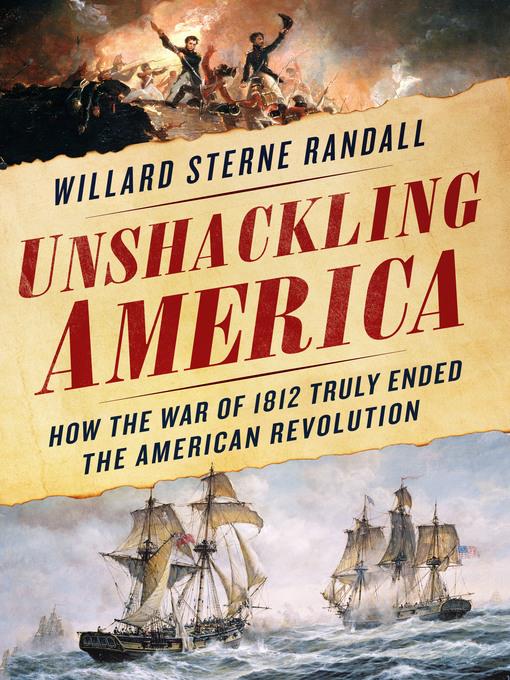
Unshackling America
How the War of 1812 Truly Ended the American Revolution
کتاب های مرتبط
- اطلاعات
- نقد و بررسی
- دیدگاه کاربران
نقد و بررسی

May 1, 2017
In this detailed, if occasionally dense, account, Randall (Ethan Allen: His Life and Times), professor emeritus of history at Champlain College, argues that the War of 1812 was not a discrete conflict, but rather the culmination of a long struggle for U.S. economic independence that began with the American Revolution. Even after America gained its political freedom, post-Revolution tensions with Britain made the young republic a place of uneasy peace. As Randall demonstrates, British restrictions concerning the transportation of British goods put economic pressure on the U.S., leading to clashes over issues that included naval impressment and retaliatory smuggling. Revisiting such famous events as the Chesapeake affair, in which a British ship fired on and mustered an American crew, Randall brings to life the violent skirmishes that played out in the name of trade on sea, lake, and land. Although his account covers mostly well-trod historical territory, it nonetheless helps elucidate the complex international entanglements that shaped both the revolutionary period and its aftermath. At times, sudden leaps in time and place can make the narrative hard to follow, but readers interested in the minutiae of military history will invariably find something of interest here. Agent: Don Fehr, Trident Media.

May 1, 2017
Randall (Emeritus, History/Champlain Coll.; Ethan Allen: His Life and Times, 2014, etc.) elaborates on the war that shouldn't have been fought and that no one won or lost.The War of 1812 was the culmination of a decadeslong trade war between England and the United States. The British colonies existed only to supply raw materials and purchase British goods. The author begins in 1759, at the end of the Seven Years' War. With the expulsion of the French from the Americas, settlers were ready to move west only to find England denying them access to lands and the fur trade. Regulations poured out of London under George III, determining what America could and could not trade. This was sufficient cause for a revolution, but the problems continued after independence. While Britain fought Napoleon and his forces in Europe, America determined to remain neutral. The British began taking American ships, claiming they were transporting war materiel and impressing English "deserters." Randall's lengthy background information causes the early narrative to plod, but it does help to expose the futility of the war. Britain actually repealed orders for embargoes and ship confiscations, but word didn't arrive in Washington until a month after war was declared. Neither side was prepared, nor could they afford a war. With the fall of Napoleon, the need for impressing sailors, and the true cause of the war, had ended; America had little naval might to counter Britain's vast armada. When it came down to the fighting, American military leaders were woefully inadequate. The British union with Tecumseh and his confederacy tilted the scales at first toward the English. Even major successes could not unite the states, especially in the anti-war Northeast. It was only the burning of Washington by the savage George Cockburn that united the country with a will to fight. An overlong but well-researched history that shows how the War of 1812 created America's final separation from England.
COPYRIGHT(2017) Kirkus Reviews, ALL RIGHTS RESERVED.

























دیدگاه کاربران